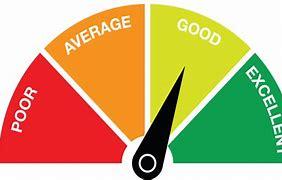
July Topic of the Month: What does your credit score mean?
A credit score is a number between 300 and 850 that’s determined using several financial factors that define a person’s “creditworthiness.” Lenders often rely on credit score to help determine whether they will offer you credit or not. The higher your credit score, the more likely a lender can assume you’ll repay the debt. Thus, the higher your credit score, the more likely you’ll be approved for a credit card or loan. And the higher the score, the better your loan terms are likely to be.
Anything from 670 up is considered a good credit score, while a score below 580 is considered poor. The most common credit score in the United States is the FICO Score, which considers several major factors: payment history, debt burden, length of history, types of credit, and recent credit searches.
Payment history is the largest component of the FICO score at 35%. Late and missed payments can lower the score, even if the amount missed seems small. Debt burden is the next largest part of your credit score, coming in at 30%. This considers your total debt and how it’s broken up across different lending products, and how much of your total available credit is in use. The lower your average balance is relative to the total, the better.
Length of credit history makes up 15% of your credit score, and simply considers how long your accounts have been open and the average length of time you maintain an account. This allows lenders to understand your long-term commitment to debt repayment.
Type of credit and recent credit searches both make up about 10% of your credit score. Having different types of loans, credit cards, and mortgages can have a positive impact on your score. Recent credit searches look at how often your credit has been checked, meaning how often do you apply for new lines of credit. It will not have a long-standing impact, though, in the way other areas might.
To improve your credit score, you want to make more payments on time and lower your utilization. Try to pay your balances in full and on time every month. Keep old lines of credit open and limit your usage. Credit score isn’t the only factor that lenders use to make decisions, but a credit score can help or hurt you in repayment. Improving your credit score can help improve your overall financial wellbeing.
Call Orsinger Investment Group, Inc. at 724-588-9067 to schedule a financial review.

 F 888-854-5442 | E
F 888-854-5442 | E 